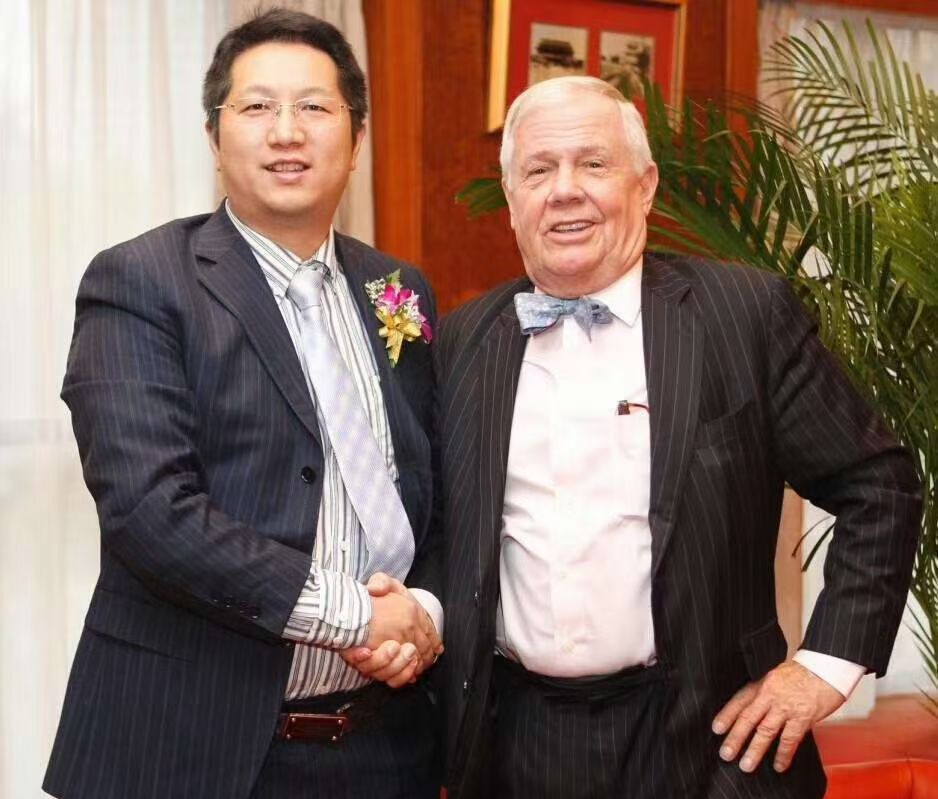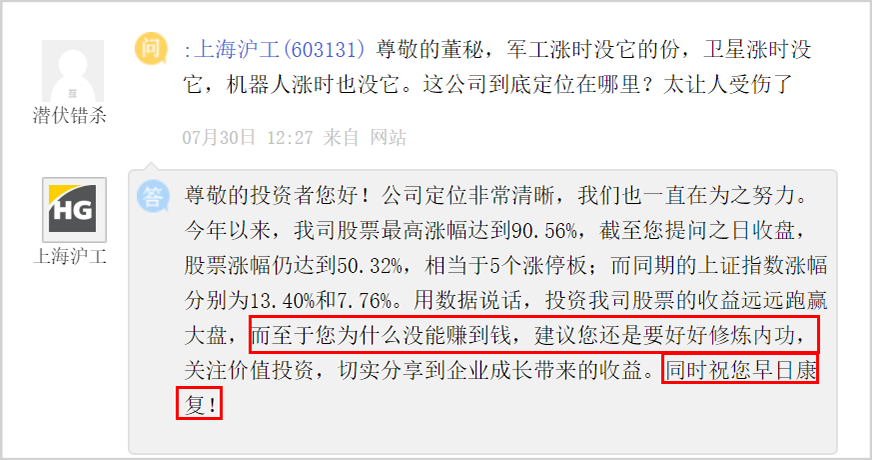Market value management needs to be returned.
Editor’s note: This article is from the WeChat public account “Market Value Observation” (ID: shizhiguancha), author: Zhang Wei.
Recently, the “market value management” broker, Ye Fei, advertised frantically on the Internet that it is not only the related companies involved, but also this secret industrial chain.
Market value management, which is a normal method of listed company governance, has become a synonym for manipulating stock prices?
What kind of market value management is needed in China’s capital market?
01 “False management” and true “manipulation” are popular
The concept of market value management first appeared in 2005 when China’s share-trading reform was launched. In May 2014, the State Council clearly proposed “encourage listed companies to establish a market value management system”, and the decision-makers have great expectations for market value management.
But from the conception to the implementation, the market value management has been continuously stigmatized. In the context of the current capital market, the mention of market value management is even considered by many to be synonymous with stock price manipulation.
In Ye Fei’s revelations, the original script of this story is that the trader team will negotiate the amount of funds and revenue sharing through an intermediary (Ye Fei), and then the intermediary will find a funder to buy the stock to “lock up” . After the lock-up, the market makers pulled up the stock price and fled at a high level to entangle the profits of the retail investors.
▲ Ye Fei (left one)
In fact, compared to the tip of the iceberg that has surfaced, “market value management” hidden in hidden corners has long been popular. Xu Xiang’s Ningbo death squad intervened in the stock market, playing the banner of “market value management,” but they used some invisible methods such as insider trading, stock price manipulation, and fabricated concepts.
Looking at the many demon stocks in the A-share market, although the trader is different, the script of violent control, violent pull, and avalanche crash is the same: The sickle swung at the leeks, and the retail investors took over.
At present, the market value management of alienation also stems from the increase in the “specialization” of the industry. A group of “brokers” who professionally operate businesses and win over resources include both Sunshine Private Equity or Financial Public Relations companies, as well as intermediaries who are inextricably linked with securities firms and public equity institutions. heThey are experienced and even advertised as “professional institutions with the ability to manipulate the market and the power to set prices.”
Under the mentality of eager for quick success and quick profit, the way of realizing stock price management by manipulating the market has become popular. In terms of meaning, it is not only the market value management that is alienated, but also the mentality of the entire capital market.
02 How to do market value management?
Correct and efficient market value management is the comprehensive use of business model innovation, repurchase increase, equity incentives, investor relationship management and other methods by listed companies to maximize the value of the company and shareholders.
In fact, there are many listed companies in the A-share market that have performed well in market value management.
Midea Group can be called the king of A-share repurchase. Through continuous repurchase and increase of holdings for market value management, it can even play a role as a pinnacle.
From February 2019 to October 2020, Midea Group spent a total of 5.9 billion to repurchase 104 million shares. With the frantic purchase of Baima shares and northbound funds, the company’s stock price went up all the way during this period. The stock has risen around 40 yuan until the highest of 108 yuan in February 2021. Although the company’s stock price entered a down cycle after this, Midea Group also launched multiple rounds of repurchase plans during the year to enhance investors’ confidence in the stock price.
▲ Midea Group stock price
Similarly, companies such as Yanghe Co., Ltd. and China Unicom, which have always been known for their excellent management, are also good at using repurchase and additional issuance to incentivize their stock prices.
For listed companies, building a methodology for market value management is not only a response to fluctuations in the company’s stock price, but also a comprehensive management. At the Berkshire shareholders meeting in 2019, Buffett mentioned: Market value management is not simply about raising the stock price, but about value creation and value realization.
For a long time, Buffett has been conducting market value management. 54 years ago, he dissolved the partnership and became the owner of Berkshire Hathaway. The classic IP created by him, Berkshire’s shareholder meeting, became the market value management company. The best carrier.
▲ Buffett’s shareholders meeting site
The general meeting of shareholders has achieved almost the ultimate in IR (Investor Relations), AR (Analyst Relations), MR (Media Relations), and RR (Regulatory Relations). Not only has it established a smooth communication bridge with investors, but also fully delivered market value through professional KOLs, gained a good reputation in public media, and formed a benign interaction with the regulatory authorities.
03 Compulsory Course for Secretary of the Board of Directors
The importance of correct market value management in listed companies is undoubtedly important, but for some board secretaries, it is a compulsory course that they urgently need to take up.
Improving brand voice and communicating with investors through public relations is an important part of market value management. But the secretary of the board who was supposed to build a communication channel with investors has repeatedly made headlines because of his arrogance.
In 2019, as the secretary of the board of the domestic medical equipment leader Mindray Medical, he told shareholders at the shareholders meeting that “there are many shareholders today, with only 100 shares. They also come to the shareholders meeting, I don’t know why they are intent.” Into the whirlpool of public opinion.
Last year, on the exchange’s interactive platform, an investor asked Shanghai Hugong: “It doesn’t have its share when military industry rises, satellites do not have it, and robots do not have it when they rise. Where is the company positioned?
Mr. Dong Hui, the company’s stock rose by 90.56% during the year, far outperforming the market. At the same time, he did not forget to “care” about the health of the stockholders: “As for why you haven’t made any money, I suggest you still practice your internal skills… …And I wish you a speedy recovery!”
▲ Picture source: Shanghai e-interactive platform
In fact, on these investor exchange platforms, the replies of Secretary Dong almost lack substantive content, and most of the repliesNor did they face the question directly. “All are subject to official announcements”, “Thank you for your attention”, and “Thank you for your support” have become standard answers. In particular, the Secretary of the Board of Directors almost always kept silent about the major letter incidents that investors were concerned about.
Obviously, this lack of professionalism and sincerity makes it difficult to win the approval of investors.
Healthy and standardized market value management is not an imperative of stock price control, nor is it a perfunctory task by the secretaries of the board of directors, but a long-term business that requires continuous hard work and careful management.
■ Disclaimer
This article involves the content of listed companies, and is the author’s personal analysis and judgment based on the information disclosed by listed companies in accordance with their legal obligations (including but not limited to temporary announcements, periodic reports, and official interactive platforms, etc.); the information in the article Or opinions do not constitute any investment or other business advice, and Market Value Watch does not assume any responsibility for any actions resulting from the adoption of this article.



